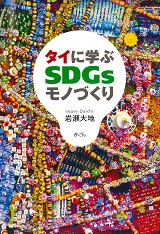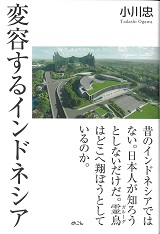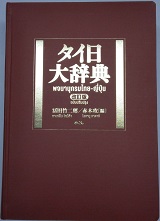<A href="http://jijieigo.at.webry.info/200804/article_43.html" target="_blank">ブログ版</A>
「遊撃隊国家」「カルト国家」「首領国家」「盆栽国家」・・・。類を見ない専制体制を堅持する北朝鮮は、日本でもさまざまな呼び方がされる。英語でも北朝鮮ほど多くの異名を持つ国は恐らくない。その中のひとつ「ソプラノ国家」と聞いて、すぐにピンとくる人は少ないかもしれない。(鳥居英晴)
英文記事では、同じ言葉の繰り返しは嫌う。北朝鮮を別の言葉で言い換える時に最も使われるのが”Stalinist state”(スターリン国家)である。ひと昔前には、これはアルバニアにも使われていた。現在では、Google Newsでこの言葉を検索しても、出てくるのは北朝鮮だけである。
これにreclusive, isolated(孤立した), hermetic(閉鎖的)impoverished(貧困にあえぐ)といった形容詞がかぶさることが多い。
この他の言い方としては、”pariah state”(のけ者国家)、“criminal state”(犯罪国家)、“ rogue state”(ならず者国家)、“punk state”(不良国家)、“psycho state” (錯乱国家)、“evil state”(悪の国家)、"failed state"(破たん国家)、"Orwellian state"(オーウェル国家)などがある。ろくな表現がされていないものばかりである。
最近目についたものに“stalker state”(ストーカー国家)がある。2国間交渉に引き込むために、しつこく米国に付きまとうことからきている。米シンクタンク・ノーチラス研究所のピーター・ヘイズ所長は、“The Stalker State: North Korean Proliferation and the End of American Nuclear Hegemony”(ストーカー国家:北朝鮮の核拡散と米国の核覇権の終わり)) という論文(10月4日付)を同研究所のサイトに載せている。
Like a repeat offender, the DPRK is likely to continue to use nuclear threat to stalk the United States until it achieves what it perceives to be a genuine shift in Washington's attitude. Unlike an individual who stalks, there is no simple way to lock up a state that stalks another with nuclear threat.
(再犯者と同じように、北朝鮮は米国の態度が本当に変わるまで、米国に付きまとうために核の脅威を使い続けるであろう。個人のストーカーと違って、核の脅威で他国に付きまとう国を閉じ込める方法はない)
英フィナンシャル・タイムズ紙(10月13日付)のソウルのアナ・ファフィールド記者は“The search for Pyongyang’s pressure point”(平壌の弱点を捜す)と題する記事で次のように述べている。
But it is North Korea’s sizeable illegal trade that will further dilute any economic sanctions. Analysts suggest North Korea earns about one-third of its revenues from aid, one-third from conventional exports and the remainder from criminal activities.
(しかし、経済制裁の効果をなくさせるのが、北朝鮮のかなりの部分を占める違法取引である。アナリストによると、北朝鮮の収入のうち3分の1が援助、通常の輸出によるのが3分の1、残りは犯罪活動による)
Crime is such a fundamental part of North Korea’s economy that David Asher, co-ordinator of the US State Department’s North Korea working group from 2003 to 2005, calls the country the “Soprano state”.
(犯罪が北朝鮮経済の基礎的な部分になっているため、2003年から2005年まで米国務省北朝鮮作業グループ調整官を務めたデビット・アッシャーは、同国を“ソプラノ国家”と呼ぶ)
“North Korea is perhaps the only country in the world whose embassies and overseas personnel are expected to contribute income to the ‘Party Centre’, not rely on central government funds for their operations,” said Mr Asher in a speech at the Wilson Centre last November.
(「北朝鮮は、その大使館や海外の要員が活動資金を政府の資金に頼るのではなく、“党中央”に献金をすることを期待されている、恐らく世界でただひとつの国であろう」とアッシャー氏は昨年11月、講演で述べた)
同記事では「ソプラノ国家」について、説明がない。10月13日付のマーキュリー・ニュースは、短く触れている。
It's been called an "evil state," a "psycho state" and even a "Soprano state" that survives on crime, like the fictional television mob family.
(北朝鮮は、“悪の国家”、錯乱国家”、さらにテレビドラマのマフィア一家のように“ソプラノ国家”と呼ばれている)
それはケーブルテレビのドラマで、テレビ版「ゴッド・ファーザー」と言われる”The Sopranos”。日本ではDVDで発売されている。舞台はニュージャージー州。主人公のトニー・ソプラノは、表向きは産業廃棄物処理会社の経営者だが、裏の顔はイタリア系マフィア、ソプラノ・ファミリーのボスのひとりである。
Wikipediaにはこうある。
Since it first aired in 1999, the show has become a cultural phenomenon, gaining wide popularity and exceptional critical acclaim for its groundbreaking approach to its view into the Mafia lifestyle, the American family, the Italian American community, the effects of violence on the human soul and the grey area between what society considers morally right and wrong.
(1999年に放映が始まって以来、文化的な現象になった。人気を博し、マフィアのライフスタイル、米国の家族、イタリア系米国人社会、人間の魂への暴力の影響、道徳的な善と悪の間のグレーの部分へ画期的なアプローチで称賛を得た)
北朝鮮に対して“Soprano”という表現を初めて使ったのは、U.S. News and World Report誌の調査報道記者、デビッド・カプラン。2003年1月27日号で”The Far East Sopranos”(極東のソプラノ一家)と題した記事でであった。
When U.S. officials call the North Korean regime "mafialike," they aren't exaggerating. Desperate for hard cash, the regime is mass-producing narcotics and counterfeiting U.S. dollars.
(米当局者が北朝鮮政権を“マフィアに似ている”というのは、誇張ではない。現金に困って、政権は麻薬を大量に製造し、偽の米ドル札をつくっている)
Its official crime wave is helping fuel growing corruption there and prompting independent crooks to get into the game. Smugglers now find they can more easily bribe border cops and other officials. Some U.S. officials welcome the development. "The key here is lack of government control," says one. "Criminal activity may bring about the disintegration of this regime."
(当局による犯罪の急増で、汚職がますます増え、どこにも属していない者がそれに参加するようになった。警察官などに容易に賄賂が渡せるようになった。米国の当局者はこの動きを歓迎している。「カギになるのは、政府の管理がなくなっていることである」と言う。「犯罪活動はこの政権の崩壊をもたらすかもしれない」)
|















